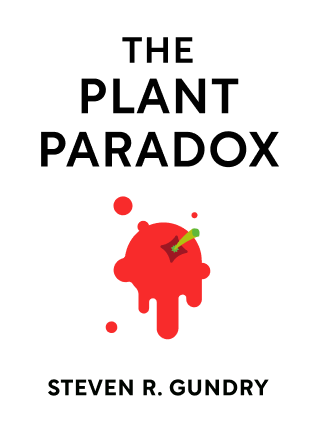

This article is an excerpt from the Shortform summary of "The Plant Paradox" by Steven R. Gundry. Shortform has the world's best summaries of books you should be reading.
Like this article? Sign up for a free trial here .
What is the relationship between lectins and autoimmune disease? What are the lectins’ immune system effects in humans?
Lectins can make you sicker than you realize. Autoimmune diseases, which impair your ability to fight infections, can be triggered by lectins.
Read on to understand the relationship between lectins and autoimmune disease.
Lectins and Autoimmune Disease
Since the mid-1960s, Americans’ health has increasingly worsened, with a rise in obesity, diabetes, autoimmune diseases, cancer, and other ailments. It turns out that the smallest things can cause the biggest problems; lectins, a type of plant protein, are toxins that wreak havoc on your internal health, causing weight gain, inflammation, and other physical issues. So how do lectins in the immune system work?
(Shortform note: Health organizations including the Mayo Clinic and the Harvard School of Public Health acknowledge the harmful effects of active lectins, but they add that people generally don’t eat enough to cause major health issues and that most lectin-containing foods have health benefits that far outweigh the negative effects of the lectins.)
The author developed this theory and program through his career as a heart surgeon, cardiologist, and immunologist, as well as his own dramatic weight loss. He learned how certain foods affect the immune system and how that can lead to weight gain and disease. His research showed there might be a relationship between lectins and autoimmune disease. He went on to establish the International Heart and Lung Institute and eventually write this book.
Lectins, Immune System Responses, and Human Defense
Lectins are large proteins contained in the seeds, grains, skins, rinds, and leaves of most plants (gluten is a type of lectin).
- Lectins can create gaps in your intestinal wall barrier.
- Lectins, the immune system, and inflammation are all related. Lectins that breach your intestinal wall trigger an attack from your immune system, causing inflammation.
- Lectins—sometimes called “sticky proteins”—bind to sugar molecules in your body and interrupt the communication between cells.
- Lectins mimic other proteins, fooling the body into taking unnecessary actions like storing fat and attacking certain cells.
- Lectins help viruses and bacteria attach to their intended targets, so that people who are particularly sensitive to lectins are more susceptible to viral and bacterial infections.
Everyone has different sensitivities to lectins; if your ancestors ate a certain plant, your immune system and microbiome have evolved to better tolerate that lectin.
While lectins may be powerful enough to knock out bugs, humans have a size advantage—but that doesn’t mean we’re immune. Our massive number of cells simply means that you might not see the damaging effects until lectins have compounded for years.
Our ancestors might have gotten the hint that certain foods made them feel ill or prevented them from thriving, and thus stopped eating it. But in modern times, antacids and other medicines allow people to keep eating food that naturally makes them sick.

———End of Preview———
Like what you just read? Read the rest of the world's best summary of Steven R. Gundry's "The Plant Paradox" at Shortform .
Here's what you'll find in our full The Plant Paradox summary :
- Why eating more vegetables isn't enough, and why some vegetables are toxic to your body
- The science behind lectins and how they tear apart your body, making you fat and sick
- The 6-week program to get your body back on healthy grack






